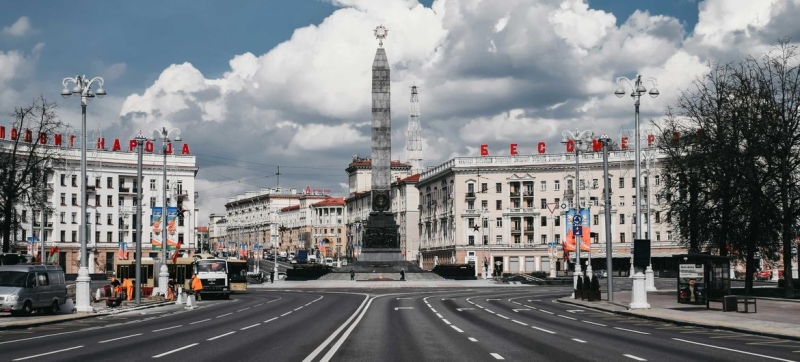
The capital of Belarus is Minsk, Victory Square. Belarus: UN experts once again stood up for the leaders of the human rights center “Viasna” Human rights
The trial of the leaders of the Belarusian human rights center “Viasna” was retaliation for their work defending human rights in Belarus. This opinion was expressed on Friday by independent UN experts.
The experts’ statement was published a year after a court in Minsk sentenced Belarusian human rights activist and Nobel Peace Prize laureate Ales Bialiatski to 10 years in prison, and two of his colleagues to 9 and 7 years.
Ales Bialiatski, Valentin Stefanovich and Vladimir Labkovich were convicted on charges of “smuggling by an organized group” and “financing group actions that grossly violate public order” by the Leninsky District Court of Minsk on March 3, 2023.
24 March 2023, several UN experts sent a letter to the Belarusian authorities expressing concern about the circumstances of the trial and noting that the trial, in their opinion, was based on politically motivated charges. The Viasna Center documented the brutal repression of protesters challenging the results of the 2020 presidential election and advocated for the rights of political prisoners.
In another letter sent on December 15, 2023, experts The UN condemned the classification of Viasna as an “extremist group,” saying that this was also retaliation by the authorities for the center’s human rights activities. So far, official Minsk has not responded to any of these letters.
Read also:
Human rights activist of the Belarusian “Viasna”: “The regime violates human rights systematically and constantly”
“Viasna” and its members have been persecuted by the authorities since its creation in 1996. In 2003, the organization was dissolved. In 2011, Ales Bialiatski was sentenced to four years and six months in prison. According to experts, the dissolution of Viasna, the refusal to re-register and the conviction of Ales Bialiatski in 2011 violated the right to freedom of association in accordance with Article 22 of the International Covenant on Civil and Political Rights.
“Given the previous history of politically motivated prosecution of Viasna, its chairman and members, there are serious reasons to believe that this time too the real purpose of the trial was to punish legitimate human rights activities, which has a serious negative impact on freedom of expression, freedom of peaceful meetings and associations in Belarus,” the experts concluded, calling on the Belarusian authorities to fully cooperate with UN human rights mechanisms, overturn politically motivated sentences and conduct a new trial in compliance with fair trial guarantees.
Special Rapporteurs (experts) are not UN employees and are independent of any government or organization. They work in an individual capacity and are not paid for their work.
